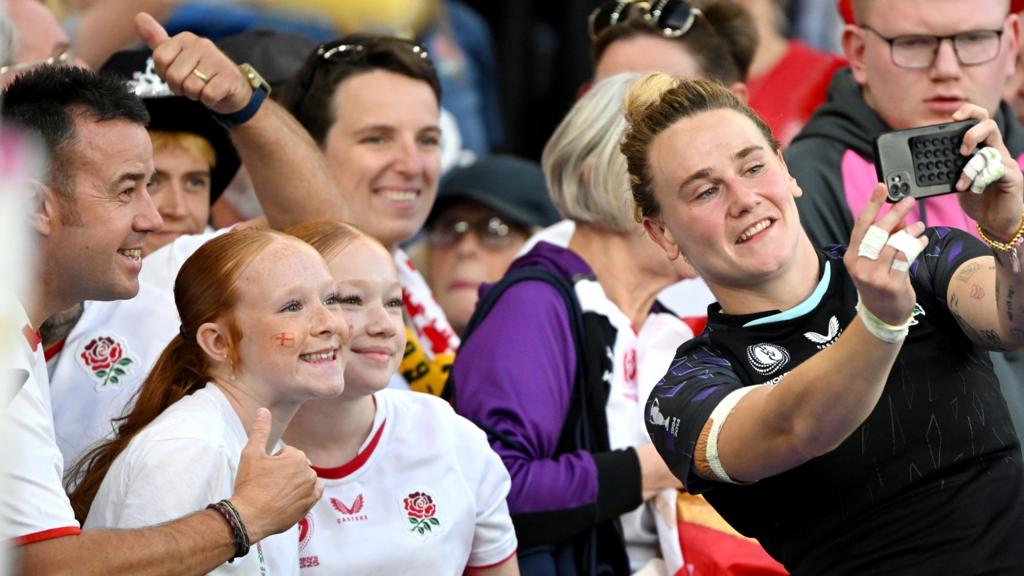The accessibility of both the athletes and the matches has proven pivotal to the resounding success of this Women’s Rugby World Cup.
Women’s Rugby World Cup final: England v Canada
Venue: Allianz Stadium, Twickenham Date: Saturday 27 September Kick-off: 16:00 BST
Coverage: Live on BBC One, BBC Radio 5 Live and the BBC Sport website and app
Regardless of the outcome of Saturday’s final, England’s role as hosts of the Women’s Rugby World Cup has been a resounding triumph.
With the 82,000-capacity Allianz Stadium at Twickenham fully booked for the tournament’s finale, a new attendance record is poised to be set for women’s rugby.
This ensures the competition concludes as it commenced, with record-breaking fanfare.
On the opening day in August, England’s match against the United States attracted 42,723 spectators, surpassing the 2022 final and establishing a new benchmark for attendance at a Women’s Rugby World Cup match.
A total of 440,000 tickets have been sold for the tournament, exceeding the figure from the previous Women’s Rugby World Cup three years ago by more than threefold.
With 470,000 tickets available across the 32 matches, the tournament achieved a remarkable 94% capacity rate.
This success can be attributed to competitive pricing, strategic scheduling, and the promotion of prominent figures beyond the Red Roses.
Tickets were priced from £10 for adults and £5 for children, while match locations were strategically chosen to ensure that, according to World Rugby, 95% of the English population resided within a two-hour radius of a tournament venue.
While the men’s Rugby World Cup has previously incorporated weekday evening pool matches, this tournament, after its Friday night opener, scheduled all matches on weekends, enhancing accessibility for families and younger supporters.
Double-header weekends, featuring fixtures in the same city, and occasionally on the same day, were implemented to bolster attendance at less prominent matches.
For instance, Brazil, competing far from home and with a relatively low profile, had their three pool-stage fixtures scheduled immediately before or after higher-profile matches involving Ireland, New Zealand, and France, thereby increasing their visibility.
Content creators were integrated with each team to produce behind-the-scenes content, connecting fans with previously unfamiliar stories, teams, and players.
A video of Australia’s 18-year-old full-back Caitlyn Halse being lifted into the stands in York, external by her father garnered over 13 million views on the Rugby World Cup’s TikTok account.
The knockout stages transitioned to rugby’s traditional strongholds, ensuring maximum attendance for the most significant matches.
The quarter-finals were concentrated in the south-west, split between Exeter’s Sandy Park and Bristol’s Ashton Gate. The semi-finals, both held in Bristol, collectively attracted 49,870 spectators.
Saturday’s crowd will exceed the 58,498 who witnessed England defeat France at the same venue during the 2023 Six Nations, which was the previous record for a 15-a-side match, as well as the 66,000 who attended the women’s rugby sevens at Stade de France during the 2024 Olympics in Paris.
England v Canada: Rugby World Cup final guide
Jones nominated for World Rugby player of the year
Kildunne comes to party with swagger in semi-final win
Listen: Sport’s Strangest Crimes – Bloodgate
Listen to the latest Rugby Union Weekly podcast

